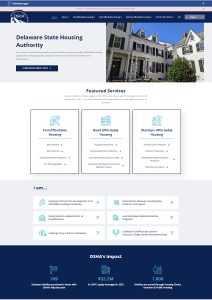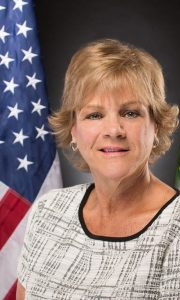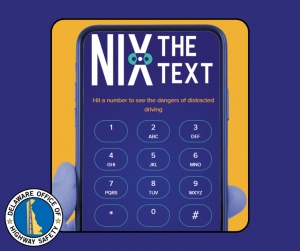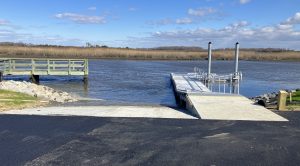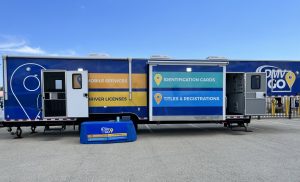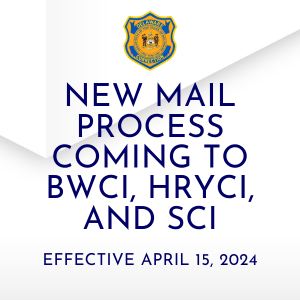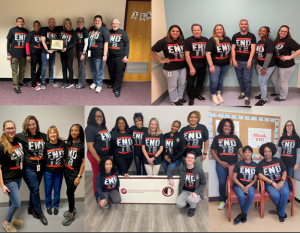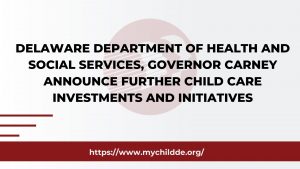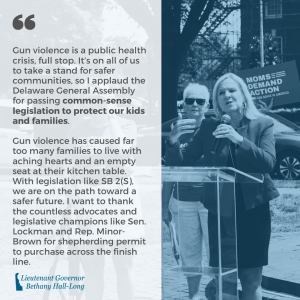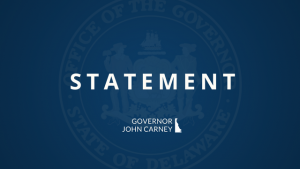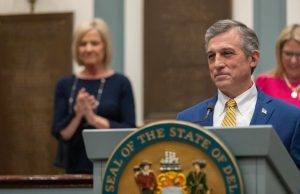Keeps core commitments to education, public safety and healthcare while maintaining fiscal responsibility
Dover, DE – Governor Jack Markell today unveiled a balanced Fiscal Year 2017 budget proposal that promotes increased job and educational opportunities for Delawareans, while maintaining fiscal responsibility by only appropriating 98 percent of available revenues and sustaining a fully funded Rainy Day Fund. Responsible budgeting has allowed the state to maintain a AAA bond rating from all rating agencies. The budget also upholds the Governor’s core commitments to schools, public safety and healthcare.
“Our budget reflects our values and our most important value must be making economic opportunity available for all Delawareans,” said Markell. “We can’t avoid the fact that our world is changing rapidly. The new economy has transformed skills required for good jobs and the educational opportunities required to gain those skills. Businesses have more choices than ever about where to locate and expand. Settling for the status quo means our state will fall behind – the opportunities for Delawareans will diminish.
“We must continue to focus investments in areas that have the greatest impact: stronger schools and access to training beyond high school to prepare our workforce, innovation and infrastructure to spur economic growth, ensuring our people are healthier and safer, and ensuring our budget is sustainable for years to come.”
The Governor’s proposals include new initiatives and the advancement of initiatives underway. A series of fact sheets released this month shows the progress upon which this budget builds.
Keeping Commitments to Strengthening Public Schools
The budget proposes a significant increase in public education funding, including: $15.8 million for 188 new teacher units to meet the demands of increased enrollment in public schools and $9.2 million for salary step increases for school employees. Despite fiscal challenges, the Governor has proposed and signed budgets that fully fund class size and step increases every year of his Administration.
The budget also continues the state’s commitment to provide access to quality early learning programs. Since the state made a significant investment in early learning in 2011, the number of low-income children in quality programs has increased from five percent to 59 percent. This progress has also been supported by a federal grant, which has helped programs to better train staff, upgrade curriculum and ultimately gain a higher rating. The Governor proposes $11.3 million to ensure that support continues to be available.
The Governor outlined new investments, including $3.0 million to support upgrading technology, to provide faster internet in our schools. The budget proposal also includes $1 million to fund Technology Block Grants to provide technology support for districts and charter schools.
In addition, he proposed $6.0 million to support recommendations of the Wilmington Education Improvement Commission to improve opportunities for underserved Wilmington students. Funding will provide additional resources to address the needs of low-income students in the Red Clay School District, including English Language Learners (ELL), and establish a Wilmington Redistricting Fund to support continued transition and implementation of a plan to give Wilmington residents the ability to better engage in their schools.
“We will not dramatically change the course of education in Wilmington without redrawing district lines,” said Markell. “But those changes must be paired with additional resources for the highest-need students. We are one of the few and declining number of states that does not allocate extra resources to statewide ELL and low income students in our funding system. That needs to change, and it’s why we have a taskforce sorting through our complicated funding system statewide. While we can’t make the dramatic changes to fix the whole system all at once, we can start, and I propose that we do so in Wilmington this year as part of our efforts to support changes in the City.”
Furthermore, $4.0 million will support improvements in educator compensation, making progress to help better attract and retain great educators and complementing the work of the Committee to Advance Educator Compensation and Careers. The Governor’s proposals include increasing entry-level salaries to be more competitive with neighboring states; piloting teacher-leadership roles to provide additional compensation for teachers while allowing them to stay in the classroom; and providing stipends for educators who attain National Board Certification but who aren’t currently receiving compensation for that achievement.
“It’s clear that our starting salaries are not competitive in the region,” said Markell. “In fact, they are lower than all of our 21 neighboring districts. The bulk of the $4 million I propose will go toward a commitment to attracting great new educators, while we continue to work toward a system that ensures educators can earn more for the responsibilities they take on in their schools without leaving the classroom.”
Spurring Economic Development and Improving Quality of Life
Since the depths of the recession, Delaware has seen the fastest job growth in the region at more than 13 percent, and the last two years have set a new state record for job creation in consecutive years. The Governor’s budget continues efforts to invest in economic development that creates jobs and improves the quality of life in Delaware’s communities. The recommended budget includes:
- $10.0 million for the Delaware Strategic Fund to provide targeted financial assistance to businesses. Recent projects supported through the Delaware Strategic Fund include grants to growing companies such as SevOne, Croda, and Edgewell Personal Care. Companies receiving state grants have exceeded job requirements by 25 percent.
- $15.8 million for infrastructure improvements at the Port of Wilmington.
- $10.7 million for libraries including Duck Creek, Selbyville, Route 9/13 and Harrington, helping set a record for the most library investment of any Administration in state history.
- $8.5 million to promote economic activity in designated Downtown Development Districts. Established in Fiscal Year 2015, this program strengthens and enhances downtown areas by subsidizing rehabilitation and construction up to 20 percent of the total project cost. Currently, three downtowns have been designated to receive funding: Wilmington, Dover and Seaford.
- $5.5 million for redevelopment of strategic sites at NVF in Yorklyn and Fort DuPont in Delaware City.
- $3.1 million for the Riverfront Development Corporation.
- $3.0 million to continue the Governor’s efforts to improve quality of life through statewide trails and pathways.
- $1.0 million for the Fraunhofer Center for Molecular Biotechnology (CMB) Vaccine Development. This funding is intended to create high-tech, high-impact jobs, spin-off businesses, new partnerships and alliances, and enable CMB to leverage its unique technologies in the biotech marketplace.
- $1.0 million for the Bioscience Center for Advanced Technology. The Center fosters academic industry research partnerships to support local bioscience businesses and help Delaware recruit, retain and create science-based jobs.
- $750,000 to leverage Federal Research and Development Matching grants. This program offers funding support to federally-sponsored research grant proposals developed by Delaware State University, Delaware Technical Community College and the University of Delaware.
Ensuring Public Safety
The Governor’s budget also makes important investments in the area of public safety.
Funding is provided for improvements to the 800 MHz communications system, with $6.3 million to support an upgrade of the infrastructure to the national P-25 interoperability standard, while also replacing transmitters, microwave and older end-user portable and mobile radio equipment.
The budget provides $500,000 to purchase body cameras for Law Enforcement within the Department of Safety and Homeland Security and to support the Attorney General’s Office in reviewing recordings. Body cameras serve as a tool to help police officers protect citizens while strengthening trust between law enforcement and all of the communities they serve.
In addition, $1.3 million is provided in the capital budget for renovations to the Delaware National Guard Bethany Beach Training facility.
Continued Commitment to Fighting Addiction Epidemic
Like many states across the country, Delaware continues to face an addiction epidemic and the Governor has made significant investments in improving access to services, including withdrawal management and residential services statewide. The Fiscal Year 2017 proposal makes further investments in the treatment of substance use disorders, including $2.3 million for the following improvements:
- $1.1 million for the creation of an Assertive Community Treatment (ACT) team, including a psychiatrist, nurse, psychologist, social worker, substance abuse specialist, vocational rehabilitation specialist and a peer specialist, to provide comprehensive and individualized services to 100 high need clients who would otherwise continue to cycle through higher levels of care.
- $1.2 million for Day Program services, providing 20 or more hours of clinically intensive programming per week based on individual treatment plans. Services include individual, group and family counseling; education on recovery; monitoring of drug use; medication management; medical and psychiatric evaluations; and orientation to community-based support groups. Funding will provide for a program capacity of 25 clients at a time.
Sustaining Responsible State Finances
The largest cost driver for the upcoming fiscal year is in healthcare for state workers and retirees, where spending for state employee health plans has risen almost 50 percent since the start of the decade. If nothing changes by the end of the decade, it will double to $1 billion.
“This trend is not sustainable for taxpayers,” said Governor Markell. “Nearly doubling the money we spend on healthcare also means hundreds of millions of dollars that we can no longer invest in improving our schools, protecting our environment, making our neighborhoods safer, and continuing to raise the quality of life across our state.”
Governor Markell’s recommended operating budget provides $33.3 million in additional funding to cover increasing costs for state employee and retiree health care for the coming year. Legislation will also be introduced to make changes to improve the long-term viability of state employee health care plans, while ensuring state workers have access to high quality care. These proposals include introducing a new plan for all new employees hired on or after January 1, 2017; eliminating the health insurance premium preference for two state employees who are married (Double State Share); and eliminating the contribution inequity for pensioners on the Special Medicfill prescription plan.
Final Budget Totals
The Governor has proposed a one percent or $500 general salary increase (whichever is greater) for state workers and a one percent increase for state nonprofit providers of services to clients in the Departments of Health and Social Services, Services for Children, Youth and Their Families and Correction.
The Fiscal Year 2017 Recommended Operating Budget totals $4,113.5 million. The proposed Fiscal Year 2017 Recommended Bond and Capital Improvements Act totals $486.9 million and includes $236.1 million in State agency capital projects and $250.8 million in Transportation projects. The Governor also set aside $43.0 million for Grants-in-Aid.
“We should all be proud of the tremendous progress we have made in the past few years, but that progress will not continue unless we continue to invest in opportunities for our people – unless we continue to challenge ourselves to build a better budget and make the hard decisions to ensure resources are available to prepare all Delawareans to thrive in today’s economy,” said Markell. “I look forward to another year when we will challenge ourselves to make our state stronger than ever.”
A power point of the proposal is available online: http://budget.delaware.gov//budget/fy2017/documents/budget-presentation.pdf.
###






